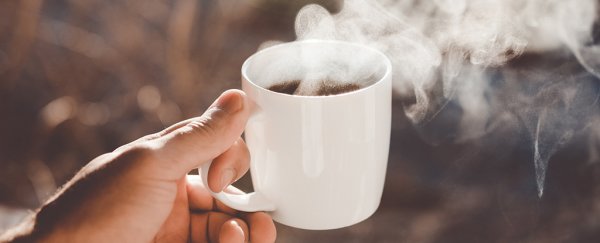If you're looking to maximize the amount of fat burned in your next workout, think about having a coffee half an hour before you get started – as a new study suggests it can make a significant difference to fat burning, especially later on in the day.
Researchers found that 3 milligrams of caffeine per kilogram of body weight – about half a single dose of caffeine, commonly held to be about 6 mg/kg – can boost the rate of fat burning during aerobic exercise, based on results gathered from 15 male volunteers.
The coffee dose was shown to increase maximal fat oxidation rate (MFO, a measure of how efficiently the body burns off fat) by an average of 10.7 percent in the morning and 29 percent in the afternoon.
It adds to what we already know about MFO: that it's lower in the morning than the afternoon, just like overall aerobic capacity.
"The recommendation to exercise on an empty stomach in the morning to increase fat oxidation is commonplace," says physiologist Francisco José Amaro-Gahete from the University of Granada in Spain.
"However, this recommendation may be lacking a scientific basis, as it is unknown whether this increase is due to exercising in the morning or due to going without food for a longer period of time."
The researchers were also keen to look in closer detail at the relationship between caffeine and exercise. The stimulant is often associated with improved athletic performance, though the science behind this link isn't as comprehensive as it could be.
Across the course of four weeks, the 15 volunteers in the study went through four tests in a random order: taking a placebo at 8 am, taking a placebo at 5 pm, taking a caffeine supplement at 8 am, and taking a caffeine supplement at 5 pm.
In subsequent cycling tests after the stimulant or placebo had been given, the fat-burning capability of the body was measured, showing the impact that caffeine had made on MFO. Maximum oxygen uptake (VO2max) was also boosted, as was the intensity of exercise that elicited MFO, (which the team call Fatmax).
"The results of our study showed that acute caffeine ingestion 30 minutes before performing an aerobic exercise test increased maximum fat oxidation during exercise regardless of the time of day," says Amaro-Gahete.
This is a study with a fairly small sample of participants of course, so it's important not to jump to too broad a conclusion, but the results are clear enough to suggest that there is some kind of association there.
The findings add another dimension to the continuing discoveries scientists are making about how caffeine can affect the running of our brains and bodies, and there's still lots more to learn – from its impact on sleep to the effect it has on our bowels.
In the meantime, if you're wondering how to make the most of your regular exercise routine in terms of fat burning, this study provides some clues: a cup of coffee before your next workout might well provide some benefits.
"Overall, these results suggest that a combination of acute caffeine intake and exercise at moderate intensity in the afternoon provides the best scenario for individuals seeking to increase whole-body fat oxidation during aerobic exercise," the researchers conclude.
The research has been published in the Journal of the International Society of Sports Nutrition.
